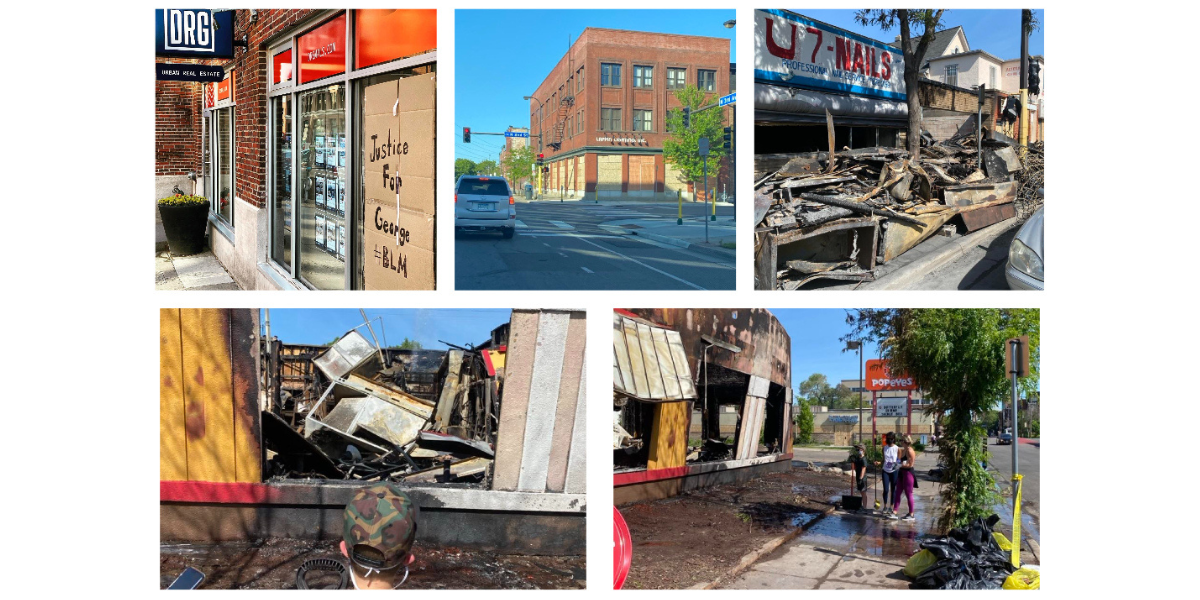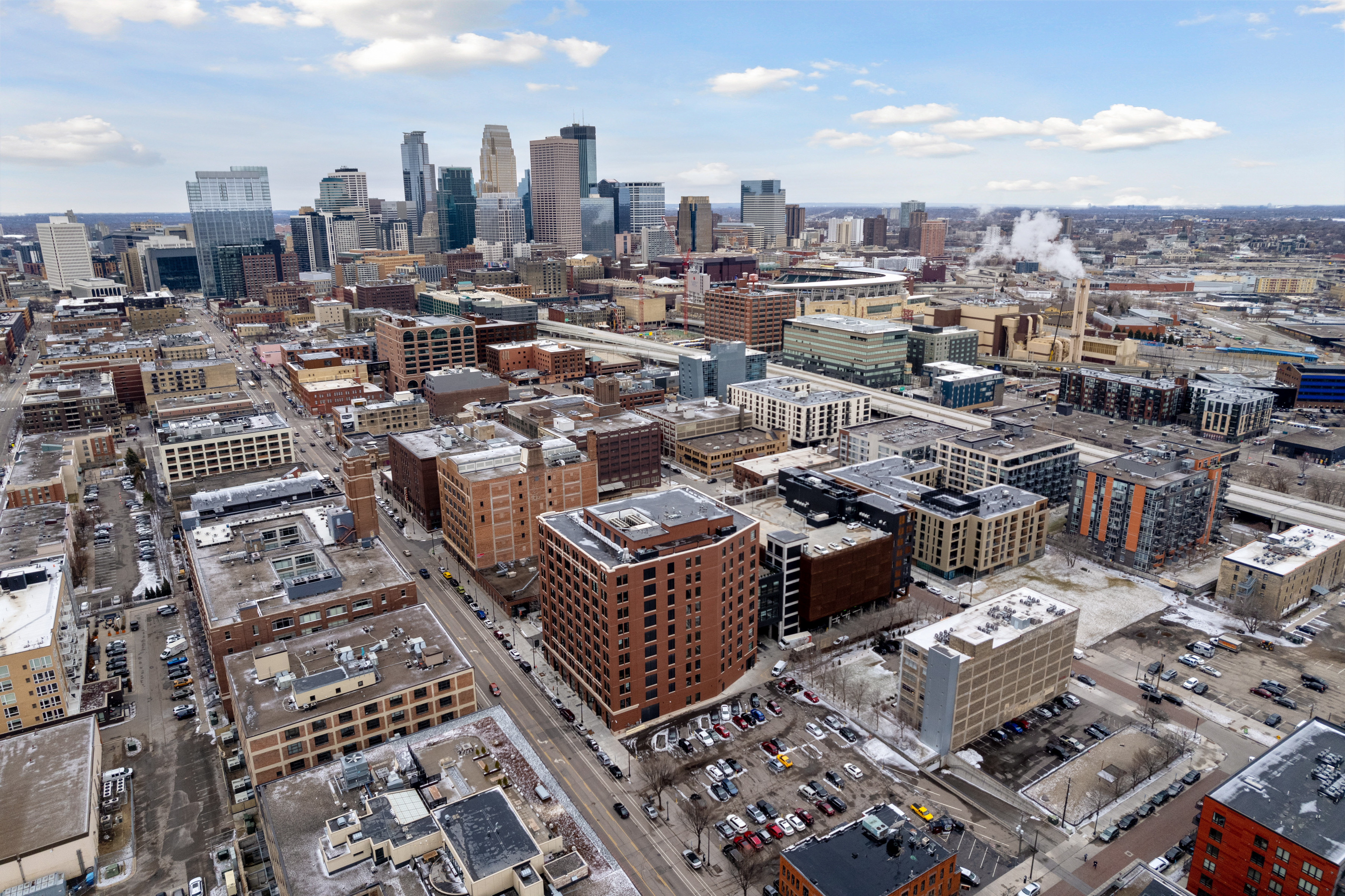If you're wondering whether downtown Minneapolis is safe in 2025, the short answer is yes. Downtown is safer today than it's been in years, and the data proves it.
Violent crime downtown dropped about 14 percent in 2023. Robberies and carjackings also fell by roughly one-third across the city heading into 2025 (Star Tribune). Gun-related incidents moved below pre-2020 levels for the first time in years (Star Tribune).
These aren't small improvements. They're signs of a steady, real turnaround.
But if the numbers look this good, why do so many people still believe downtown is unsafe? To understand that, we need to acknowledge the past and how Minneapolis is rewriting its story.
-
WHY MINNEAPOLIS GOT A NEGATIVE REPUTATION
-
WHAT THE DATA SHOWS TODAY
-
WHY CRIME IS DROPPING
-
THE PERCEPTION GAP
-
NEIGHBORHOOD SNAPSHOT
-
HOW MINNEAPOLIS COMPARES TO OTHER U.S. CITIES

Why Minneapolis Got a Negative Reputation
Let's be honest about it. Minneapolis didn't end up with a negative reputation by accident.
2020 put Minneapolis on every screen in the world. The murder of George Floyd and the civil unrest that followed changed the way the world saw this city. Entire blocks burned. Businesses closed. The police department faced historic staffing shortages. For many people, that moment became the whole story.
Crime spiked nationwide from 2020–2022. Nearly every major American city saw significant increases in crime during this period as society reopened, support systems strained, and law enforcement resources were spread thin (FBI UCR). Minneapolis was part of a national trend, not an outlier.
People held onto scary headlines. Even as numbers improved, the national narrative didn't catch up. Once a city becomes a symbol, perception lags far behind reality.
Remote work changed downtown foot traffic. With fewer office workers around, streets felt quieter. Quiet doesn't always mean unsafe, but it feels different. That shift alone fueled perception issues.
So yes, the past was complicated. Minneapolis lived through a hard chapter. But the story didn't end there.
What the Data Shows Today
Here's where things get better and stay better.
- Violent crime downtown down 14% (Downtown Council)
- Robberies + carjackings down one-third since 2022 (Star Tribune)
- Gun-related incidents below pre-2020 levels (Star Tribune)
- Two straight years of declines across major categories (WCCO Minnesota)
These changes aren't a blip. They're sustained.
Is downtown Minneapolis safer now? Yes. And the numbers aren't subtle, they're significant.
Why Crime Is Dropping: Minneapolis Changed the Playbook
Minneapolis didn't wait for things to fix themselves. The city invested in visibility, activation, and new community-driven strategies that are proven to work.
1. Warehouse District Live
This weekend program fills the entertainment district with music, lighting, food trucks, and a stronger community presence. More people. More energy. Less crime (WCCO Minnesota).
2. Joint Patrol Teams
Police officers, outreach workers, and Downtown Ambassadors now walk the core together until 3 a.m. Their presence is consistent, friendly, and easy to spot. That visibility changes behavior fast (WCCO Minnesota).
3. Environmental Upgrades
Improved lighting. Camera expansion. Better communication between building managers, business owners, and law enforcement. Cleaner sidewalks and public spaces. Small steps, repeated everywhere, add up (KSTP).
4. Stronger coordination between city partners
Venues, resident groups, restaurants, and the Downtown Council collaborate more efficiently than they did five years ago. It's a different system now: faster, clearer, more connected.
This is why improvement has been steady, not random.
The Perception Gap: Headlines vs. Everyday Life
If you read national media, you might think downtown is empty or unsafe. If you actually walk it? You see something completely different.
Here's what you see on a typical day:
- Dog walkers on every block.
- Brunch lines in North Loop.
- Runners on the riverfront.
- Crowds at the Guthrie.
- Mill District patios packed at sunset.
- Loring Park full of families, students, and long-time locals.
- Concert lines at First Ave wrapping around the building.
Minneapolis is alive.
My favorite way to explain it is simple:
People who don't come downtown talk about crime. People who live downtown talk about how fun it is.
Perception is stuck in 2020. Reality is living in 2025.
Neighborhood Snapshot: What Each Area Feels Like
Every downtown neighborhood has its own personality. Here's a quick vibe check:
North Loop
Walkable, energetic, and social. Busy patios. Lots of residents. High visibility.
Mill District
Calm, scenic, and arts-focused. River views. Morning walkers. Lower noise levels.
Downtown East
Newer buildings, Vikings games, and a strong daytime presence from residents and professionals.
Loring Park
Green space, long-time condo communities, and a friendly, eclectic crowd.
All of these areas feel active in their own ways and all benefit from the same citywide safety improvements.
How Minneapolis Compares to Other Cities
Here's what surprises people most: Minneapolis stacks up well when you compare it to other U.S. cities.
1. Minneapolis has lower violent crime per capita than several major metros.
Cities like Milwaukee, Memphis, Chicago, and New Orleans consistently record higher violent crime rates. Minneapolis lands closer to cities like Denver, Seattle, and Austin, places with strong urban appeal.
2. Minneapolis' rebound is stronger than many cities its size.
While cities across the country struggled to regain stability after 2020, Minneapolis logged two straight years of improvement.
3. A smaller, walkable downtown helps.
Our compact downtown footprint allows for:
- quicker police and outreach response
- easier lighting and camera coverage
- stronger visibility
- more effective city programming
Big-city challenges become more manageable when the geography works with you.
Minneapolis isn't falling behind. It's catching up and pulling ahead.
Bottom Line
Downtown Minneapolis in 2025 is safer, busier, and more vibrant than the headlines suggest. Crime is down. The community is strong. And the momentum is real.
If you want a walkable, active, urban lifestyle with great food, great parks, and a tight-knit condo community, downtown might surprise you in the best way.
Ready to Explore Downtown Living?
Tell us what you're looking for, and our team will curate options that match your lifestyle including off-market homes you won't see on the big portals.
Joe Grunnet
Broker | DRG | Condo Expert
700 Washington Ave N, Ste 101
Frequently Asked Questions
Is downtown Minneapolis safe in 2025?
Yes. Downtown Minneapolis is safer in 2025 than it has been in years. Violent crime dropped about 14% in 2023 (Minneapolis Downtown Council), and robberies and carjackings fell by roughly one-third heading into 2025 (Star Tribune). Gun-related incidents also moved below pre-2020 levels (Star Tribune).
Why do people think downtown Minneapolis is unsafe?
Negative perception is tied to the events of 2020, national media coverage, and a temporary rise in crime from 2020–2022 that happened in nearly every major U.S. city (FBI UCR). Even though the numbers have improved, old headlines linger. In reality, downtown is busier, safer, and more active than the national narrative suggests (WCCO Minnesota).
How does downtown Minneapolis compare to other major U.S. cities?
Minneapolis has lower violent crime per capita than several large metros, including Milwaukee, Chicago, Memphis, and New Orleans (FBI UCR). It’s more similar to cities like Denver, Seattle, and Austin — places known for strong urban lifestyles (FBI UCR).



